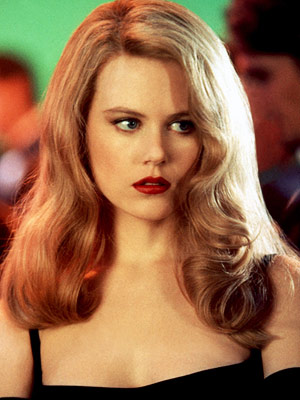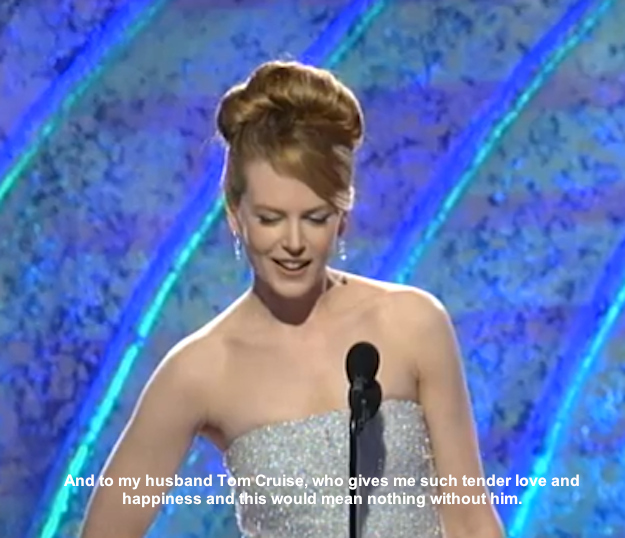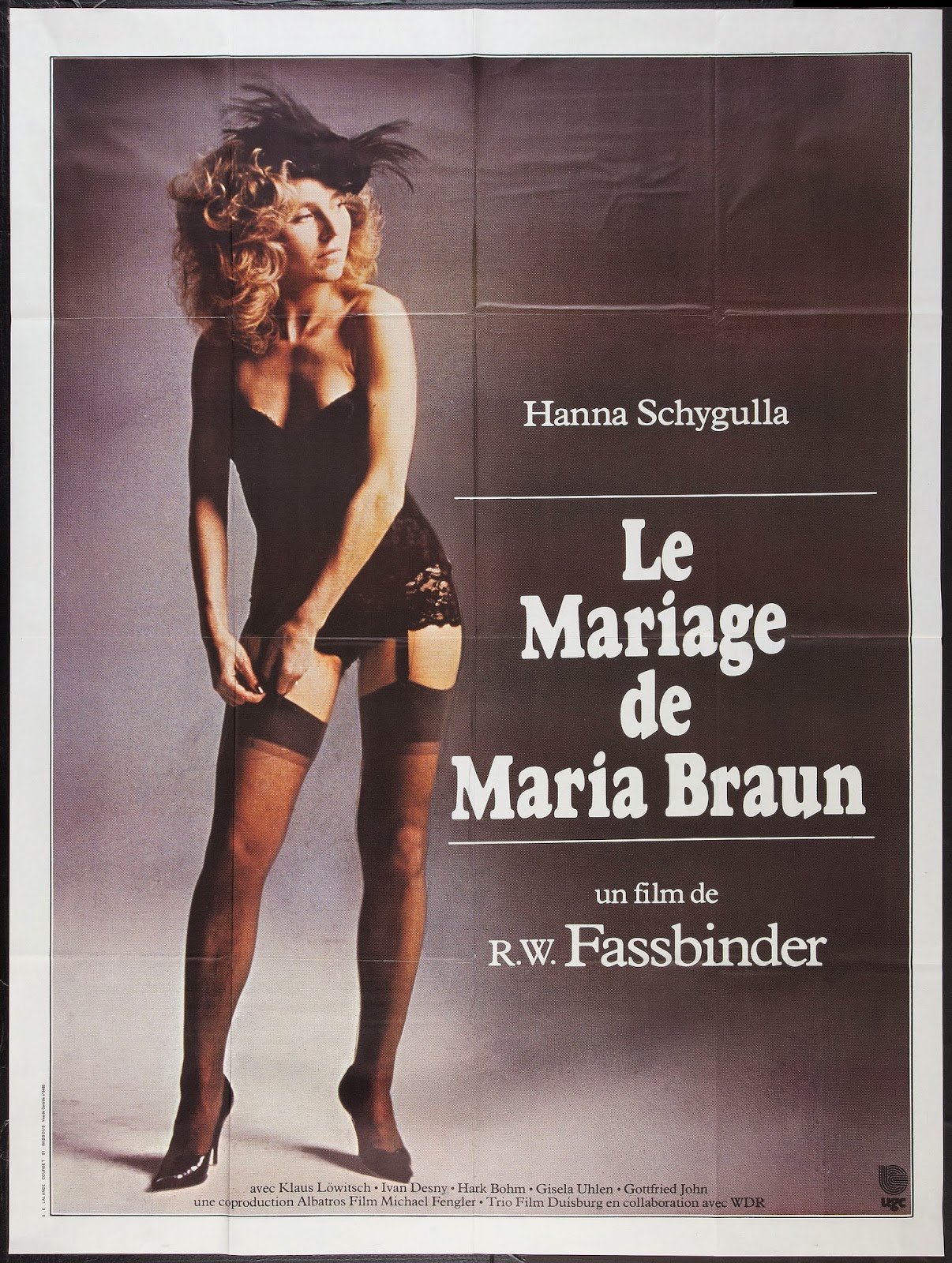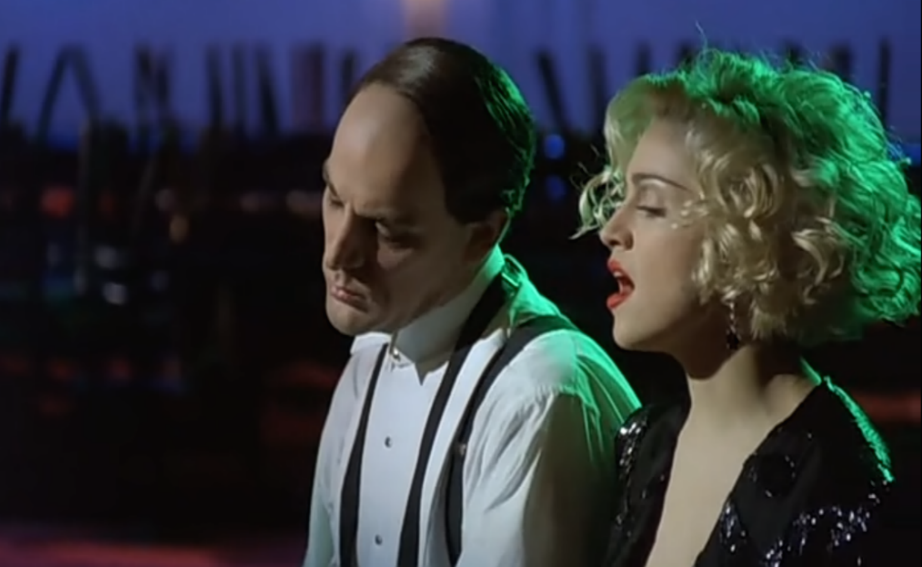Smackdown 1995. Meet the Panelists
 Tuesday, July 21, 2015 at 11:00AM
Tuesday, July 21, 2015 at 11:00AM IMPORTANT UPDATE: The Next Supporting Actress Smackdown has been pushed back one week to Sunday August 2nd. That leaves us just under two weeks for any 1995 madness we want to get off our chest. That's leaves you just under two weeks to finish revisiting the Supporting Actresses at home and get your votes in by Thursday July 30th. Please only vote on the performances you've seen...

- Joan Allen, Nixon [Amazon Rental | iTunes Rental]
- Kathleen Quinlan, Apollo 13 [Amazon Rental | iTunes Rental]
- Mira Sorvino, Mighty Aphrodite [only available on disc]
- Mare Winningham, Georgia [Netflix Instant Watch]
- Kate Winslet, Sense & Sensibility [Free With Amazon Prime | iTunes Rental]
Just outside the shortlist that year? Who knows but maybe it was Globe nominees Kyra Sedgwick (Something to Talk About) and Anjelica Huston (The Crossing Guard), or SAG nominee Stockard Channing (Smoke) or future nominee Rachel Griffiths (Muriel's Wedding). Or maybe it was Magda Szubanski (Babe) on account of the Best Pictureness of it all. In our fantasies it was definitely Gina Gershon (Showgirls).
MEET THE PANELISTS
Here's a little bit about our panel to prep you for our conversation as they finish up their screenings...
First Time Smackdowners
 KEVIN O'KEEFE
KEVIN O'KEEFE
Kevin O'Keeffe occasionally stops talking about "Smash" long enough to think about film. He even writes about it sometimes at Mic, where he's the arts staff writer in residence, but he's also written for The Atlantic, The Advocate, LA Weekly and more. Let him be your star by following him on Twitter.
What does 1995 mean to you?
I'm ashamed to admit I was a child in that year, so my big motion picture experience was Babe. (I'm surprised Babe didn't get a nomination for Best Supporting Actress, to be frank.) I hadn't seen many of these movies – the early 90s are a bit of a void for me, since I'm usually revisiting older movies or keeping up with newer ones. That's what drew me to the year for the Smackdown: It was the year I was alive, and yet I knew the least about it of any.
 LYNN LEE
LYNN LEE
Lynn is a government lawyer who spends most of her time outside work obsessing over arts and pop culture. Her current fascination is with "The Americans" on FX. Her first love, though, will always be movies, thanks to parents who raised her on an eclectic diet of Ingmar Bergman, talky French films, 1960s musicals, Star Wars, and Spielberg blockbusters. You can find her occasional musings on movies and TV on her blog and as a new contributor to TFE.
My life as a movie lover can be divided into two periods: Before 1995 and After 1995. Before 1995, I watched movies with my parents and friends, but didn't really seek out movies that I wanted to see for myself alone. All that changed starting the summer of '95, when I graduated from high school and for once had nothing to do but watch movies, and that fall, when I headed off to college in an actual CITY and discovered a whole moviegoing universe I'd only been dimly aware of before. I discovered there was such a thing as theaters reserved exclusively for "arthouse" and "independent" films. (First movie seen in such a theater: "The Brothers McMullen," or maybe it was "Chasing Amy.") I discovered Kate Winslet in "Sense & Sensibility." I discovered that movies could become the college equivalent of water cooler conversation ("The Usual Suspects"). Above all else, I discovered that movies were something you could discuss with communities of fellow movie lovers - and I've never looked back since then.".
 CONRADO FALCO
CONRADO FALCO
Conrado "Coco" Falco can be described as a student currently earning his undergraduate degree at Hunter College, as an aspiring theater director currently working on a play about the life and death of Taylor Swift, or as a film blogger currently writing for his personal blog Coco Hits New York. First and foremost, however, he is a film lover. [Follow Coco on Twitter.]
What does 1995 mean to you?
One of my earliest (and most traumatic) memories comes from Christmas Eve 1995. I was three at the time. My grandma told me she had wrapped my gift in the "Snoopy" wrapping paper, so I went straight to it before anyone read the tag. To my surprise, the gift was a Pocahontas Barbie doll. I was mocked by all my cousins in what was one of the most embarrassing moments of my childhood. I don't have many specific '95 memories otherwise, except for the fact that "Babe" and "Toy Story" were big staples of my childhood. I'm currently revisiting '95 movies in my personal blog, and discovering that it might be one of the most underrated years in American cinema.
Returning Panelists
 Nick gets a big photo because he worked 1995 into his bio photo. Look at all those movies!
Nick gets a big photo because he worked 1995 into his bio photo. Look at all those movies!
NICK DAVIS
Nick Davis writes the reviews and features at the website Nick's Flick Picks. The site's unpredictable cycles of frenzied activity and long dormancy have to do with his also being an Associate Professor of English and Gender & Sexuality Studies at Northwestern, where his research and teaching mostly concern narrative film in different eras, genres, and countries. [Follow Nick on Twitter]
What does 1995 mean to you?
I started college in 1995 and also started going to movies by myself in, at last, a big city with broad offerings. You work out which development was more exciting. I bought the Entertainment Weekly Summer Preview and concluded that five movies were unmissable: "The Bridges of Madison County" (because even the terrible book made me cry), "Little Odessa" (Redgrave, I guess?), "Mad Love" (crush on Chris O'Donnell), "Nine Months" (crush on Hugh Grant), and "Species" (crush on Natasha Henstridge, plus aliens, plus ambivalence about procreating). I saw "Apollo 13" with my dad before I left for school and "Sense and Sensibility" with my mom when I came home, and "Nixon" with my dad over that same Christmas, so basically you're asking me to pick between my parents. I saw "Babe" at least four times and forced skeptics to come with me. I deduced instantly who Keyser Söze was and didn't give a flying coffee cup. I deterred silent, unwanted advances from a friend while we watched "Se7en" and wondered how this movie could possibly be arousing her. I was the only man at near-empty opening-day matinees of "Home for the Holidays" and "How to Make an American Quilt". I walked into a genuine surprise birthday party my friends in the freshman dorm had thrown for me, but I left after two minutes because, I'm sorry, I'd already bought a ticket to "To Die For". I liberally quoted Angela Bassett from "Strange Days" like I was deep. I saw "Leaving Las Vegas" with the same friend I took to "Se7en". She didn't start stroking my neck this time, and we rode home in 20 minutes of unbroken silence, because by that time, a month later, I really was deep. I didn't get "Shorty". I was the face of love. I skipped "Braveheart" till the desperate studio re-released it in February, because these are our crosses to bear, sometimes literally. I skipped "Toy Story" like a damn fool. I saw it plenty of times later. I never saw "Mad Love," so what has it all been for?
 GUY LODGE
GUY LODGE
Born in Johannesburg but based in London, Guy is the chief UK film critic for Variety, and a home entertainment columnist for The Observer. His writing also appears at Time Out, Empire, The Guardian and any outlet willing to pay for long-form thinkpieces about knitwear in the movies. Follow him on Twitter at @GuyLodge.
What does 1995 mean to you?
In 1995, I was twelve years old and in my last year of primary school — on the knife-edge, then, between feeling confidently grown and authoritative, and being tossed out of my depth into adolescence. My cultural diet was in a similarly transitional state. After a hovering period, 1995 was the year I said goodbye to the children's section of the library and devoured “Jane Eyre” and “To Kill a Mockingbird”; at the movies, my parents merged my growing interests with theirs and took me to see “Three Colours: Red.” (It was both the first subtitled film I saw in the cinema, as well as the first with a no-under-16s certificate. I appreciated their trust.) Out in the larger world, my fellow South Africans were celebrating our rugby team's against-all-odds World Cup victory, joyously consolidating the national repairwork started by the previous year's election. It wouldn't last, and Clint Eastwood would later make that moment in time seem that much drabber. But the memory of temporary invincibility remains..
And your host...
 NATHANIEL R
NATHANIEL R
Nathaniel is the founder of The Film Experience, a reknowned Oscar pundit, and the web's actressexual ringleader. He fell in love with the movies for always at The Purple Rose of Cairo (1985) but mostly blames Oscar night (in general) and the 80s filmographies of Kathleen Turner & Michelle Pfeiffer (specifically). Though he holds a BFA in Illustration, he found his true calling when he started writing about the movies. He blames Boogie Nights for the career change. [Follow him on Twitter]
What does 1995 mean to you?
'I'm getting a bit old for that whorey look.'
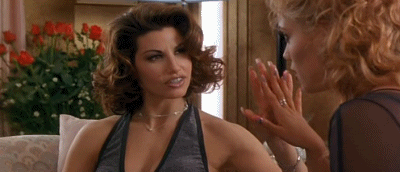
1995 is when I graduated from college so it was a big year but it seems to have entirely evaporated in my memory but for the birth of the late 20th century's New Trash Masterpiece "Showgirls".
If I dig a little-bit harder into the memory banks I remember heavy rotation among roommates and friends for Alanis Morrisette's "Jagged Little Pill," Björk's "Post" and the "Pocahontas" soundtrack (showtunes 4ever! Don't judge). Cinematically, I was in deep deep throes of love for broken-winged Brad Pitt in "Se7en," Elisabeth Shue's booze-drenched boobs in "Leaving Las Vegas," and Angela Bassett's fierce elocution and even fiercer hair in "Strange Days." My least favorite movie-going memory was seeing "Braveheart" in the theater and hearing audiences cheering its ridiculous homophobia. My best movie-going memory from '95 is taking my three little nephews to see "Babe" which they loved and kept quoting in their adorable squeaky little kid voices which they would try to make yet squeakier to approximate the mice. One of them just announced his engagement - Eeek! How was 1995 twenty whole years ago!?!?!
What does 1995 mean to you dear readers?
Do tell in the comments.




